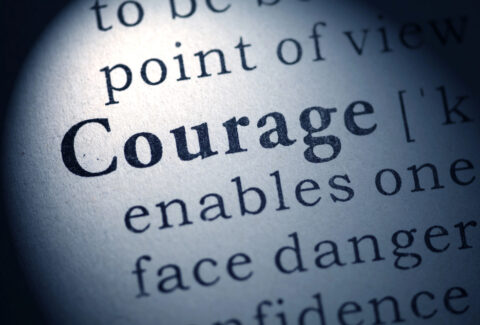The Courage to Forgive: A Path to Freedom and Healing
Forgiveness is a profound act of courage. It requires us to let go of deep-seated hurt and resentment, and to extend grace and compassion to those who have wronged us, including ourselves.[1] The courage to forgive is not about condoning harmful actions or forgetting the pain inflicted; it is about liberating ourselves from the chains of bitterness and reclaiming our peace and well-being.
Understanding Forgiveness
Forgiveness is often misunderstood as a sign of weakness or an endorsement of the wrongs committed against us. In reality, forgiveness is a powerful and transformative choice. It involves releasing negative emotions, such as anger and revenge, and choosing to move forward with a sense of compassion and understanding. Forgiveness allows us to heal emotionally and mentally, fostering a healthier and more balanced life.[2]
The Fear of Forgiveness
Forgiving someone can be terrifying. It can feel like we are letting the offender off the hook or minimizing the impact of their actions.[3] We might fear being hurt again or appearing vulnerable. However, holding onto grudges and resentment only deepens our wounds and perpetuates our suffering. The real courage lies in facing our pain and choosing to rise above it.
The Process of Forgiveness
- Acknowledge the Hurt: The first step in forgiveness is acknowledging the hurt and pain inflicted upon us. It is essential to validate our feelings and recognize the impact of the wrongdoing. Denying or suppressing our emotions only hinders the healing process.
- Reflect and Understand: Take time to reflect on the situation and the reasons behind the offender’s actions. Understanding does not mean excusing their behavior, but it can provide insights into their motivations and the broader context. This reflection helps to humanize the offender and can soften our anger.
- Decide to Forgive: Forgiveness is a conscious and deliberate choice.[4] It is about deciding to let go of the resentment and choosing peace over bitterness. This decision may not come easily or quickly, but it is a crucial step toward healing.
- Express Your Feelings: Communicating your feelings to the offender, if appropriate and safe, can be a cathartic part of the forgiveness process. It allows you to express your hurt and provides an opportunity for dialogue and reconciliation. However, if direct communication is not possible or advisable, finding another outlet, such as writing a letter or talking to a trusted friend, can be beneficial.
- Release the Grudge: Letting go of the grudge is essential for genuine forgiveness. This step involves releasing the hold that the offense has over you and choosing not to let it define your life. It is about freeing yourself from the emotional burden and opening up to positive emotions.
- Cultivate Empathy and Compassion: Empathy and compassion[5] are powerful tools in the forgiveness process. Try to see the situation from the offender’s perspective and recognize their humanity. Cultivating empathy can help shift your focus from anger to understanding.
The Benefits of Forgiveness
Forgiveness offers profound benefits for our mental, emotional, and physical well-being. It reduces stress, anxiety, and depression, and promotes feelings of peace and happiness. Forgiveness strengthens our relationships, fostering trust and understanding. It also enhances our self-esteem and self-worth, as we let go of negative emotions that weigh us down.[6]
Real-Life Examples of Forgiveness
Consider the story of Nelson Mandela, who spent 27 years in prison for his fight against apartheid in South Africa. Despite the immense suffering he endured, Mandela chose to forgive his oppressors upon his release. His courage to forgive was instrumental in fostering national reconciliation and healing. Mandela’s example shows that forgiveness is not about forgetting the past but about transforming it into a source of strength and unity.[7]
Conclusion
The courage to forgive is one of the most powerful and liberating acts we can undertake. It involves acknowledging our hurt, reflecting on the situation, making a conscious decision to forgive, expressing our feelings, releasing grudges, and cultivating empathy and compassion. Forgiveness is not about condoning harmful actions or forgetting the pain inflicted; it is about freeing ourselves from the chains of bitterness and reclaiming our peace and well-being.
By choosing to forgive, we open the door to healing, growth, and a more fulfilling life. Let us embrace the courage to forgive, knowing that it is through forgiveness that we find true freedom and inner peace.
[1] Russell, Luke. “The who, the what, and the how of forgiveness.” Philosophy Compass 15.3 (2020): e12656.
[2] Richards, Norvin. “Forgiveness.” Ethics 99.1 (1988): 77-97.
[3] Raj, Medha, and Scott S. Wiltermuth. “Barriers to forgiveness.” Social and Personality Psychology Compass 10.11 (2016): 679-690.
[4] Davis, Don E., et al. “Making a decision to forgive.” Journal of Counseling Psychology 62.2 (2015): 280.
[5] Worthington, Everett L., et al. “Compassion and forgiveness: Implications for psychotherapy.” Compassion. Routledge, 2005. 168-192.
[6] Worthington, Everett L., et al. “Compassion and forgiveness: Implications for psychotherapy.” Compassion. Routledge, 2005. 168-192.
[7] Cherry, Myisha. “Forgiveness, exemplars, and the oppressed.” The moral psychology of forgiveness (2017): 55-72.







